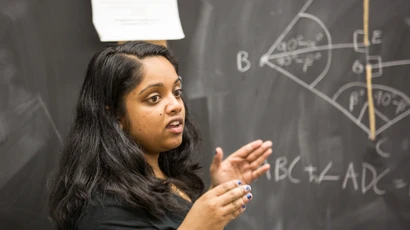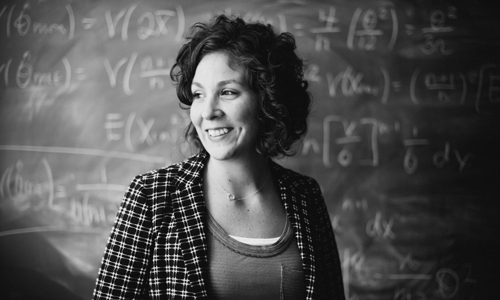
Pure Math
“Mathematics, rightly viewed, possesses not only truth, but supreme beauty.”
Bertrand Russell
In pure mathematics, people solve problems that are intrinsically interesting, regardless of their practical application. You’ve probably experienced the deep satisfaction that comes from solving a challenging problem, or the excitement of an “a-ha” moment. Pure mathematicians are motivated by a sense of exploration and discovery, as if we are charting new territory in a vast landscape. The tools we use to solve problems in pure mathematics include deep conceptual understanding, careful reasoning, and creativity.
You may have wondered whether it’s possible to make a career out of pure mathematics, or whether this has lasting value. The answer to both questions is yes! There are thousands of professional pure mathematicians working in a variety of occupations all over the world. While most work at universities and combine their research with teaching, many work at research labs, in industry, and for the government. Google and Microsoft employ pure mathematicians to develop new results that might eventually have practical application. And it pays off – results in pure mathematics have an uncanny habit of turning into exactly the right tools to solve real-world problems, in unforeseen ways.*
A strong background in pure mathematics is also good preparation for a variety of careers that involve applying mathematics to solve problems in business and industry. Employers value the conceptual understanding, critical reasoning, and general problem-solving ability that you develop in pure math coursework. For more on careers in business, industry, and government ("BIG"), see our page on applications to BIG.
Some of the areas of pure mathematics are algebra, analysis, geometry, topology, number theory, and dynamical systems. For a complete list of mathematical areas, with short descriptions, see this Wikipedia list.
If you want to study pure mathematics, the B.S. in Mathematics is a good choice. Discuss your interests and career plans with your advisor. If you want to do research in mathematics, you will probably want to earn a doctoral degree; see our page on Preparing for Grad School for more information.
*The famous physicist Eugene Wigner reflected on this phenomenon in his 1960 essay The Unreasonable Effectiveness of Mathematics in the Natural Sciences.

Pictured: Abby Flynt, class of 2006, major in Mathematics-Adolescence Education. Abby completed a PhD in Statistics at Carnegie Mellon University, and she is now on the faculty at Bucknell University in Pennsylvania.
